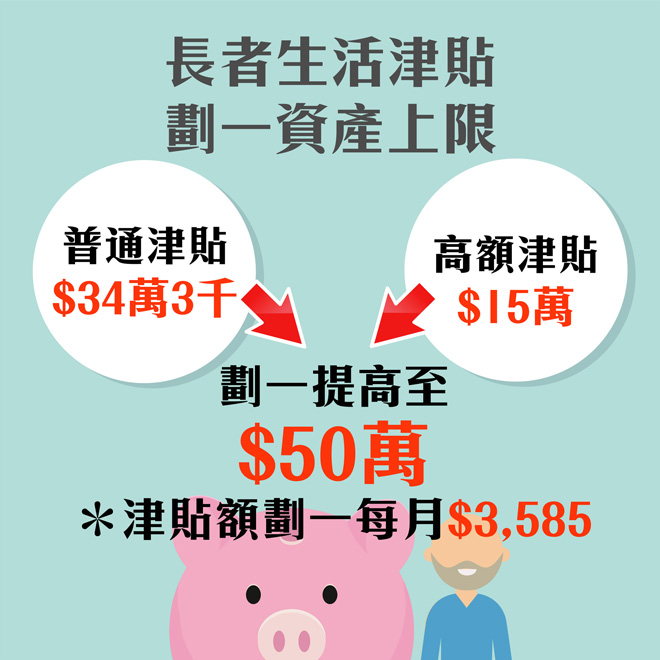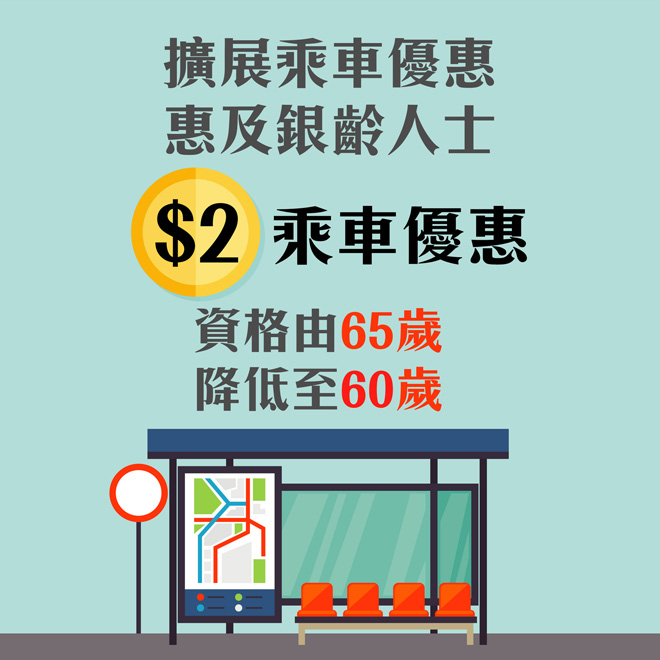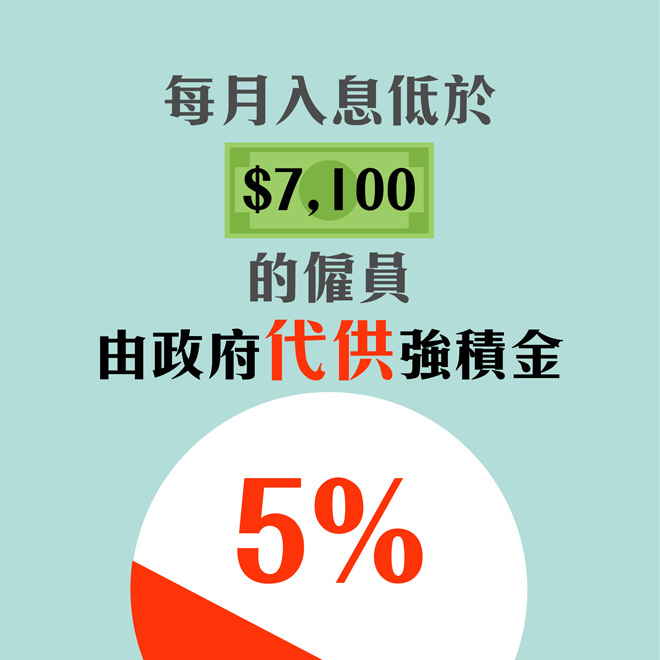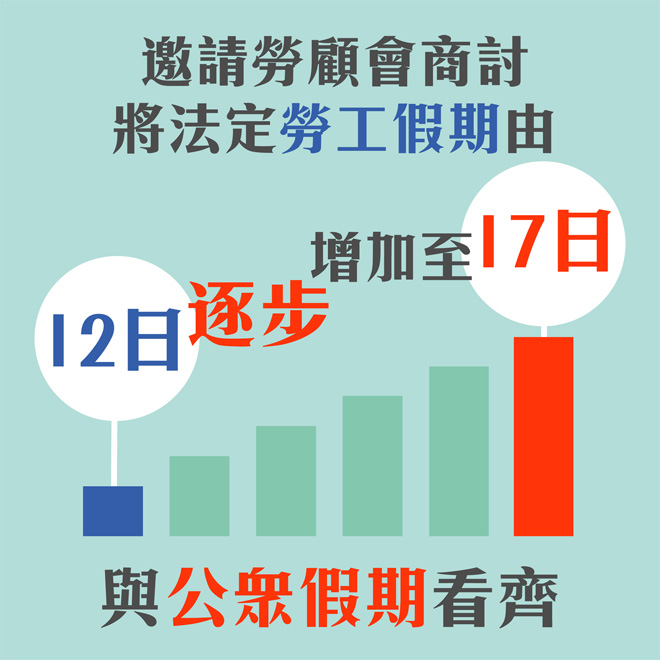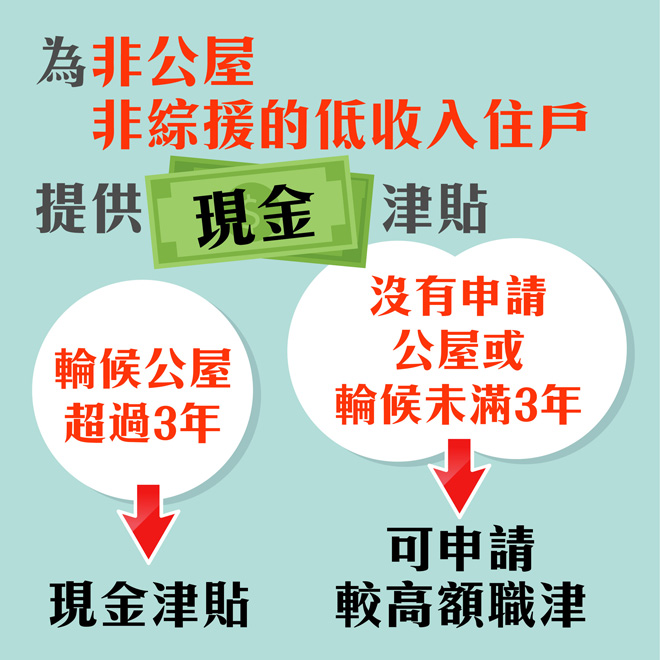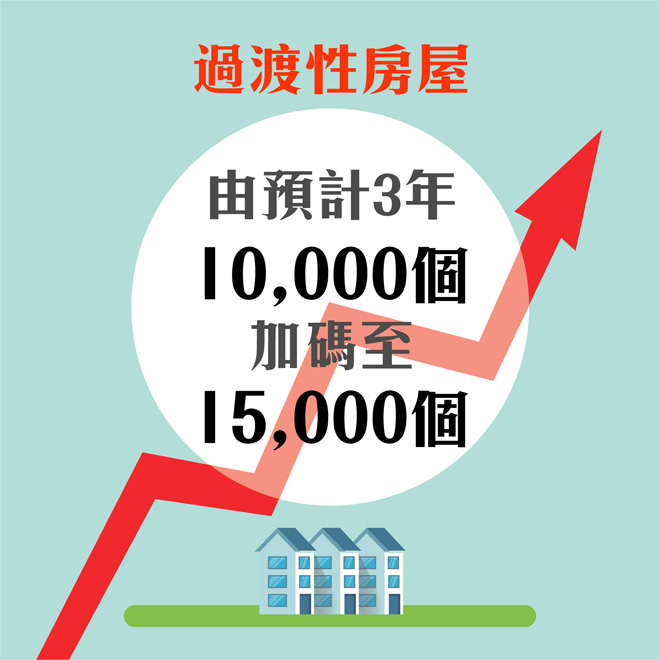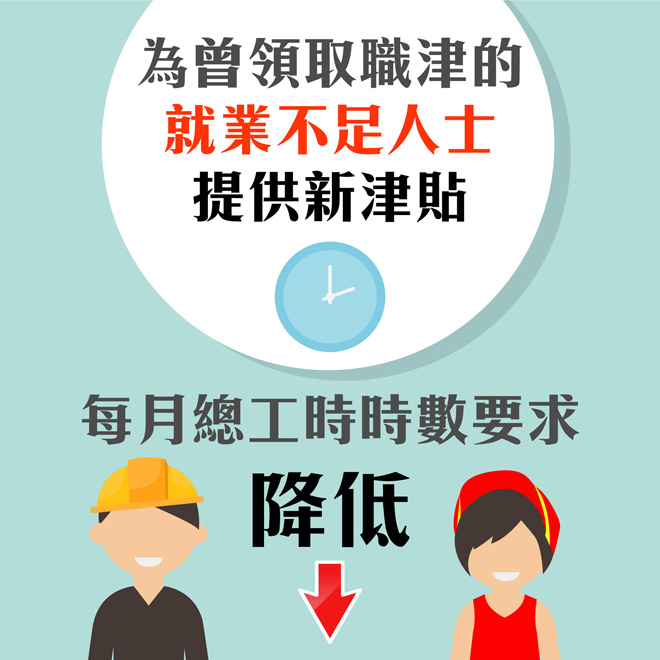New mindset in tackling livelihood issues through caring initiatives
19 January 2020
Improving people's livelihood is an important policy objective of the Government. We have been adopting a multi-pronged approach to formulate policy measures conducive to building a caring, inclusive and equal society.
The Government is now half way through its current term of office. In soccer terminology, we have entered the second half of a match and should do our best to make the most of the remaining time. Although the city has been relatively peaceful lately, society has yet to become stable again. In face of the unprecedented challenges, the Government will spare no effort, not only to end chaos and violence, but also to alleviate poverty at the grassroots. To this end, we will draw up strategic and forward-looking policy measures to pragmatically respond to the aspirations of society on retirement protection, support for the grassroots and the underprivileged as well as labour protection, and be resolute in looking for breakthroughs in tackling livelihood issues.

|
Last Tuesday (14 January), the Chief Executive announced ten new initiatives on improving people's livelihood, involving an annual recurrent expenditure of more than $10 billion and benefitting over a million grassroots people including the elderly, workers, low-income households not living in public housing and not receiving Comprehensive Social Security Assistance (CSSA), people who are inadequately housed, the unemployed or underemployed and the underprivileged. The initiatives are summarised below:
(1) Reforming the Old Age Living Allowance (OALA) Scheme
The Normal OALA ($2,675) and the Higher OALA ($3,585) will be combined with a standard monthly payment rate of $3,585. The asset limits for singletons and married couples will be significantly relaxed from $150,000 and $227,000 under the existing Higher OALA to $500,000 and $750,000 respectively. Upon the implementation of the proposal, 50 000 existing recipients of Normal OALA can receive $910 more per month while other eligible elderly persons whose assets do not exceed the above significantly raised limits can also apply for the allowance of $3,585 per month.
(2) Expanding the $2 transport fare concession scheme ($2 Scheme)
The eligible age will be lowered from 65 to 60, benefitting about 600 000 silver-age persons aged 60 to 64. The Government will examine the possibility of issuing all-in-one personalised octopus cards, which may also serve as the Social Welfare Department's Senior Citizen Cards, to all silver-age/elderly persons who are eligible for the $2 Scheme.
(3) Paying Mandatory Provident Fund (MPF) contributions for low-income persons
The Government will pay the 5% contributions for low-income employees and self-employed persons who are exempted from making MPF contributions. About 200 000 people whose monthly income is less than $7,100 will benefit. The proposal is expected to be carried out upon the implementation of the eMPF Centralised Electronic Platform by the Mandatory Provident Fund Schemes Authority in 2024.
(4) Increasing progressively the number of statutory holidays
The number of statutory holidays will be increased progressively from the current 12 days to 17 days a year so that it is eventually on a par with the number of public holidays.
(5) Improving remuneration packages for employees under government outsourced service contracts
It was announced in the 2018 Policy Address that improvement measures would be implemented for the tendering of government service contracts to enhance the remuneration packages and protection for the interests of non-skilled employees, and to increase the weighting of wage levels in tender assessments, thereby refraining from applying the sole principle of "the lowest bid wins" in contract award. The new policy achieved impressive results in improving the remuneration for workers. The Labour and Welfare Bureau will complete a review by the end of this year and will consider further improvement measures.
(6) Providing cash allowance for low-income households not living in public housing and not receiving CSSA
The Government will, on a trial basis, provide a cash allowance to eligible General Applicant households who have been waiting for public housing for more than three years until they are offered the first public housing allocation, with a view to improving their living environment.
(7) Conducting a study on tenancy control of subdivided units
At present, about 86 500 households living in subdivided units, who are bearing heavy rents and unfavourable rental arrangements, cannot benefit from the assistance provided by the Government, such as rental subsidies or electricity and water charge reductions. The Transport and Housing Bureau will set up a task force to study feasible options on tenancy control of subdivided units.
(8) Further increasing transitional housing
The Government has identified adequate land to achieve the target of providing a total of 10 000 transitional housing units over the next three years as announced in the 2019 Policy Address. The target is now raised to 15 000 units and multiple "Government, Institution or Community" sites that currently have no firm development schedule have been identified for the construction of about 2 000 transitional housing units.
(9) Providing a time-limited cash allowance for the unemployed
Individuals who are unemployed for one month or longer between 1 April 2020 and 31 March 2021 and have received assistance from the Working Family Allowance (WFA) Scheme or various Student Financial Assistance Schemes before April 2020 may apply for a cash allowance for that month and for a maximum of three months.
(10) Providing a time-limited cash allowance for the underemployed
As for the under-employed, the Government proposes that, from 1 April 2020 to 31 March 2021, individuals who have received the WFA in certain months and meet the reduced total monthly working hour requirement for other months may still apply for a cash allowance in the respective months for a maximum of three months.
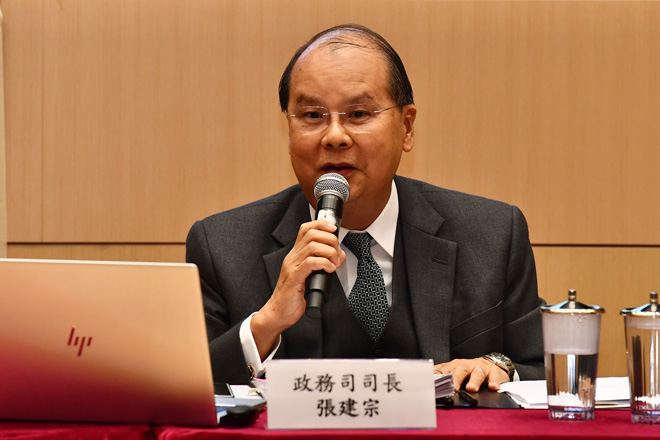
|
The $2 Scheme and the OALA Scheme launched in 2012 and 2013 respectively aim at addressing the living needs of the elderly, encouraging them to travel and enabling them to take part in community activities and lead a fulfilled life. I planned and implemented these two Schemes when I was the Secretary for Labour and Welfare (SLW). Thus I am particularly pleased to see that they are going to be further enhanced. In fact, the WFA Scheme was also introduced during my term of office as the SLW, with the aim of tackling working poverty. Now, as the Chief Secretary for Administration and the Chairperson of the Commission on Poverty, I will continue to examine and evaluate the progress and effectiveness of these measures.
Apart from reforming the OALA Scheme and expanding the $2 Scheme, we have other new initiatives that will benefit grassroots people of different ages, including grassroots workers at large. Human resources are valuable assets of Hong Kong, and sufficient protection should be provided for grassroots workers. On increasing the number of statutory holidays progressively, the Government will endeavour to strike a balance between labour rights and employers' affordability by adopting a proactive and pragmatic approach in reaching a consensus on the issue, with a view to improving employees' rights and protection in tandem with the development of our economy and society.
The introduction of a series of thoughtful and comprehensive initiatives to improve people's livelihood highlights the Government's determination to tackle deep-rooted social conflicts. Regarding those controversial policy initiatives about which the Government used to have reservations, we have indeed ridden ourselves of traditional thinking to humbly respond to the demands of political parties, Legislative Councillors and members of the public. These beneficial initiatives are not just one-off relief measures or patchwork remedies as generally perceived, but are sustained and long-term measures to relieve people's burden. Although our policies are not meant to achieve everything in one go, we earnestly hope that, with the support and cooperation of various parties, we can go full steam ahead with them.
According to the Government's preliminary estimation, the ten initiatives will incur an annual recurrent expenditure of $10 billion. They are not at all piecemeal measures as generally perceived, but bold decisions made to show the Government's concern for the well-being of the people and its support for the underprivileged. In fact, the recurrent expenditure on social welfare increased from $65.3 billion in 2017-18 to $84.3 billion in 2019-20, representing the largest growth of 29% among all policy areas.
We should use resources derived from the community for the good of the community. As a responsible government, we are committed to building a caring and inclusive society as well as improving people's livelihood. But on the other hand, it is important to maintain sound fiscal reserves and exercise financial prudence. The Government will therefore endeavour to strike a reasonable balance between fiscal prudence, social affordability and the sustainability of the initiatives.
With commitment, vision and strategic direction, the Government is on the right track to take focused actions. To improve people's livelihood, we work with unwavering determination, mighty strength, accelerated efforts and an open mindset. All principal officials and civil service colleagues will work incessantly to take forward various policy initiatives, ensuring their early implementation to benefit the public.



